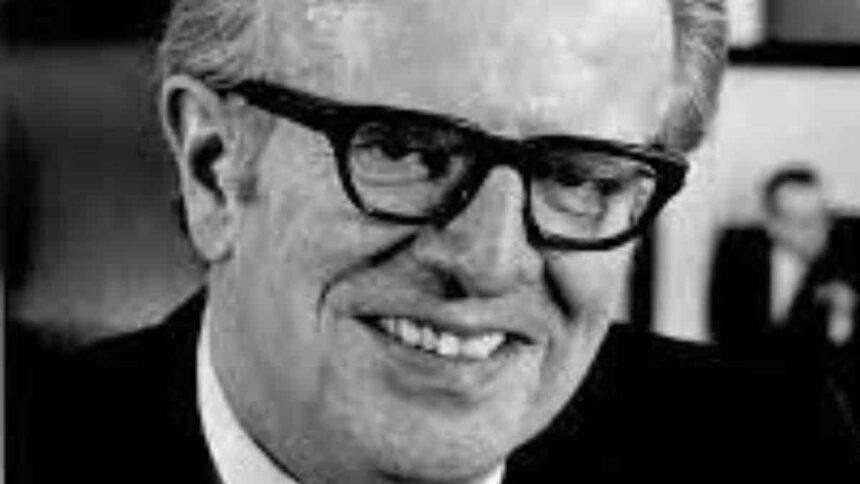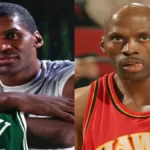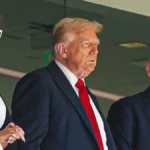For more than two decades, he was a top electoral strategist for the Democratic Party in the United States. In President Lyndon Johnson’s administration, he held the positions of Postmaster General and Chair of the Democratic National Committee. From 1975 until 1984, he also served as the National Basketball Association’s commissioner. After him, the NBA Championship Trophy is named.
O’Brien was born in Springfield, Massachusetts, the son of Irish immigrants. O’Brien also maintained his family’s real estate and engaged in public relations work outside of politics.
Politics and Early Life
O’Brien was born in Springfield, Massachusetts, on July 7, 1917. Early on, he was introduced to politics. At the age of 11, his Democratic Party-active father enlisted his help as a local volunteer for Al Smith’s 1928 campaign for president. O’Brien developed a strong Democrat stance. In 1942, he graduated from the Springfield Division of North-eastern University, which is now the Western New England University School of Law, with a bachelor’s degree in law. In 1945, O’Brien wed the former Elva Brassard. Their only child, Lawrence F. O’Brien III went on to work as a lobbyist.
His buddy Foster Furcolo appointed him to work locally as the director of the U.S. House of Representative election campaigns in 1946, 1948, and 1950. John F. Kennedy appointed O’Brien to lead his winning campaigns for the U.S. Senate in Massachusetts in 1952 and for re-election in Massachusetts in 1958. O’Brien’s hiring, use of volunteers, and insistence on contacting voters in every state’s corner were all key factors in Kennedy’s electoral success.
He started laying the groundwork for Kennedy’s presidential campaign in 1960 by touring the country and trying to establish connections with state Democratic leaders. Kennedy chose O’Brien to lead his nationwide campaign.
Kennedy’s Catholicism caused some party heavyweights to be concerned, but his electoral preparation in crucial primary states like Wisconsin and West Virginia served to allay their concerns.
He was named by President-elect Kennedy in 1960 to hire people for his administration, and in 1961 he began working as the president’s special assistant for legislative affairs and personnel. As a member of President Kennedy’s inner circle of trusted advisors, O’Brien also played a significant role in the awarding of patronage (known in Washington as the “Irish Mafia”.)
Democratic primary and general election systems subsequently adopted O’Brien’s “state-wide strategy” as an update to the long-standing reliance on large city “political machinery” as a result of his grassroots campaign tactics.
As DNC chair, he built a communication control mechanism that is still in place for state delegates and “dignitaries,” which solidified his position as a consistent candidate for the party leadership.
O’Brien rode in the motorcade in Dallas while President Kennedy and Jackie Kennedy were visiting Texas in November 1963. He witnessed President Kennedy’s assassination first-hand as a result. O’Brien returned with Jackie Kennedy and the president’s coffin to Air Force One at Love Field in Dallas after the president was pronounced dead. President Johnson contacted O’Brien and Kenny O’Donnell while on Air Force One and asked both of them to stay on and serve with him in the new government.
Role in the Government
In 1948, he began working in Washington as the aide to Rep. Foster Furcolo.
In ensuring a liberal and moderate majority in the US House of Representatives, he successfully advocated for its expansion during President Kennedy’s first year in office. O’Brien advocated for raising the minimum wage as well. He served as the Democratic Party’s contact to President Kennedy in 1962 while the party ran its midterm election campaigns.
The Post Office Department decided to move First Class mail by air and road transportation instead of cancelling numerous “mail by rail” contracts during that time period, in September 1967. As a result, several passenger rails routes that had depended on mail contracts to augment their income were forced to close. This had a severe impact on passenger train earnings.
In his honour, the Lawrence F. O’Brien Gallery at the U.S. National Archives and Records Administration was established and inaugurated in 2004.
NBA Commissioner
O’Brien, who was appointed commissioner in 1975, oversaw the ABA-NBA merger and negotiated a broadcast deal with CBS Television while game attendance increased dramatically. O’Brien advocated for an anti-drug deal with the NBA Players Association to boost the league’s reputation in reaction to PR problems following the merger.
Additionally, even though the NBA’s brand was strengthened by the merger and growth and games were now shown live on weekends, it still did not have the same level of TV exposure as other professional sports. CBS exclusively aired tape-delayed coverage of weekday NBA playoff and Finals games after the late news during the late 1970s and even into the 1980 season. In the end, CBS would come to be associated with the memorable NBA Finals matches of the 1980s.
The NBA Championship Trophy was renamed the Larry O’Brien NBA Championship Trophy after his retirement (1984), in recognition of his contributions to the sport. In 1991, O’Brien was admitted into the Springfield, Massachusetts-based Naismith Memorial Basketball Hall of Fame.
Death
On September 28, 1990, in Manhattan, New York, at the age of 73, O’Brien passed away from cancer following surgery. He was buried in Springfield, Massachusetts’ St. Michaels Cemetery.
“Get more sports news, cricket news, and football updates, log on to sportsdigest.in. Follow us on Facebook or Twitter and Subscribe to our YouTube Channel.”



























